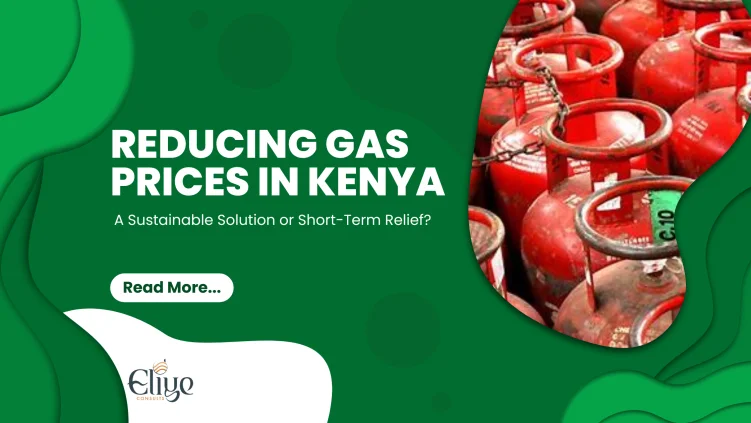
Reducing Gas Prices in Kenya: A Sustainable Solution or Short-Term Relief?
At the ground-breaking ceremony for the Taifa Gas LPG terminal in Dongo Kundu, Mombasa, The President of Kenya, Honorable William Ruto, made a bold commitment to abolish the tax on cooking gas to increase its accessibility and affordability for Kenyans. He believes that this move will not only improve the health of Kenyans by reducing exposure to harmful gases but also benefit the environment by reducing deforestation. To ensure the success of this initiative, the Energy CS, Davis Chirchir has been tasked to implement the plan. He noted that approximately 70% of Kenyans, primarily women, cook with firewood, which eventually causes health complications.
Kenya is a country where traditional fuels, such as firewood and charcoal, are still heavily relied on for cooking and heating purposes. This is particularly true in rural areas, where access to modern energy sources is limited. The use of traditional fuels not only contributes to deforestation but also exposes people to harmful indoor air pollution. According to the World Health Organization, approximately 21,000 Kenyans die each year due to indoor air pollution from cooking with solid fuels. The use of traditional fuels is also a significant contributor to greenhouse gas emissions, which exacerbates climate change. To address these issues, the Kenyan government has set a goal of achieving universal access to clean cooking solutions by 2030. This involves a transition towards cleaner and more efficient cooking technologies, such as LPG and biogas, to improve the health of the population and reduce the environmental damage caused by the use of traditional fuels.
Currently, the consumption of cooking gas in Kenya is relatively low compared to other countries in the region. According to the Kenya National Bureau of Statistics, only 13% of Kenyans use cooking gas, with the majority still relying on charcoal and firewood. One of the challenges that the cooking gas sector faces is the high cost of gas cylinders and equipment, making it unaffordable for many Kenyans. Additionally, there is a lack of infrastructure for distributing cooking gas to rural areas, limiting its accessibility to people living outside urban centres. These challenges present an opportunity for the government and private sector to invest in building a robust and affordable cooking gas infrastructure that can reach all Kenyans, promoting the use of cleaner and healthier energy alternatives.
While the reduction in gas prices is a welcome development for Kenyans, it comes up as a stability concern. The global crude oil market significantly influences gas prices, and changes in demand and supply can impact the gas price in Kenya. Additionally, subsidies and tax reductions can strain government finances and may not be sustainable in the long run.
The popularization of clean cooking gas in Kenya has the potential to catalyze the uptake of clean gas in other sectors, such as large-scale industries. As access to clean energy sources expands, more companies will have the opportunity to default to cleaner energy options. This shift could have a significant impact on reducing the country’s carbon footprint and improving air quality. According to the Kenya National Bureau of Statistics, industries consumed approximately 44% of the country’s total energy consumption in 2019, with most of it coming from fossil fuels. However, by transitioning to cleaner energy sources, such as LPG and biogas, industries can reduce their environmental impact and improve operational efficiency. Encouraging the adoption of clean gas in industries could create a ripple effect, leading to a more sustainable energy landscape for Kenya.
To ensure the long-term viability of the gas price reduction, it is imperative for the Kenyan government to invest in alternative energy sources and promote their use in all households. Kenya has made significant progress in renewable energy, such as geothermal, wind, and solar power. By investing in these sources, the country can reduce its dependence on fossil fuels and secure a cleaner, more sustainable future.


